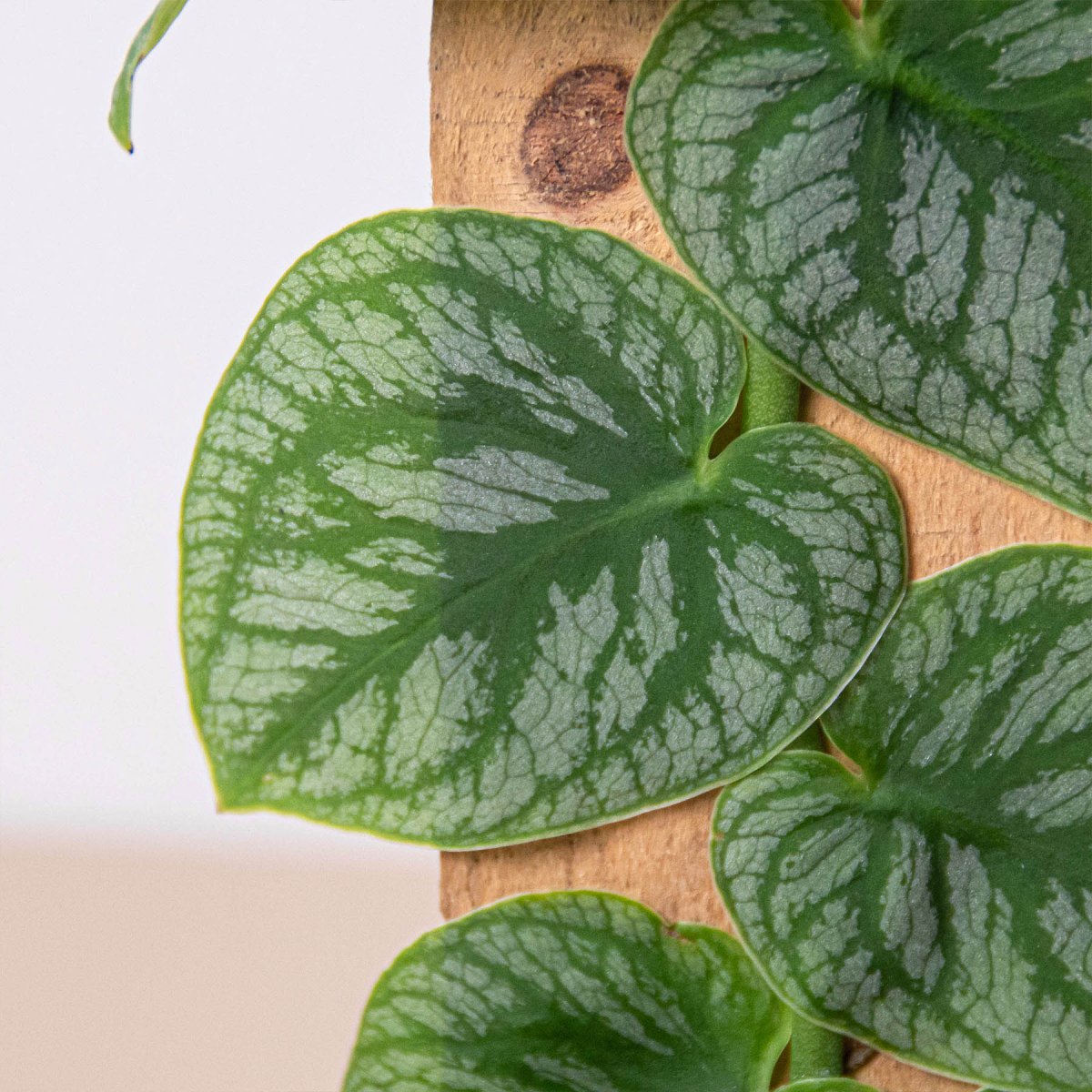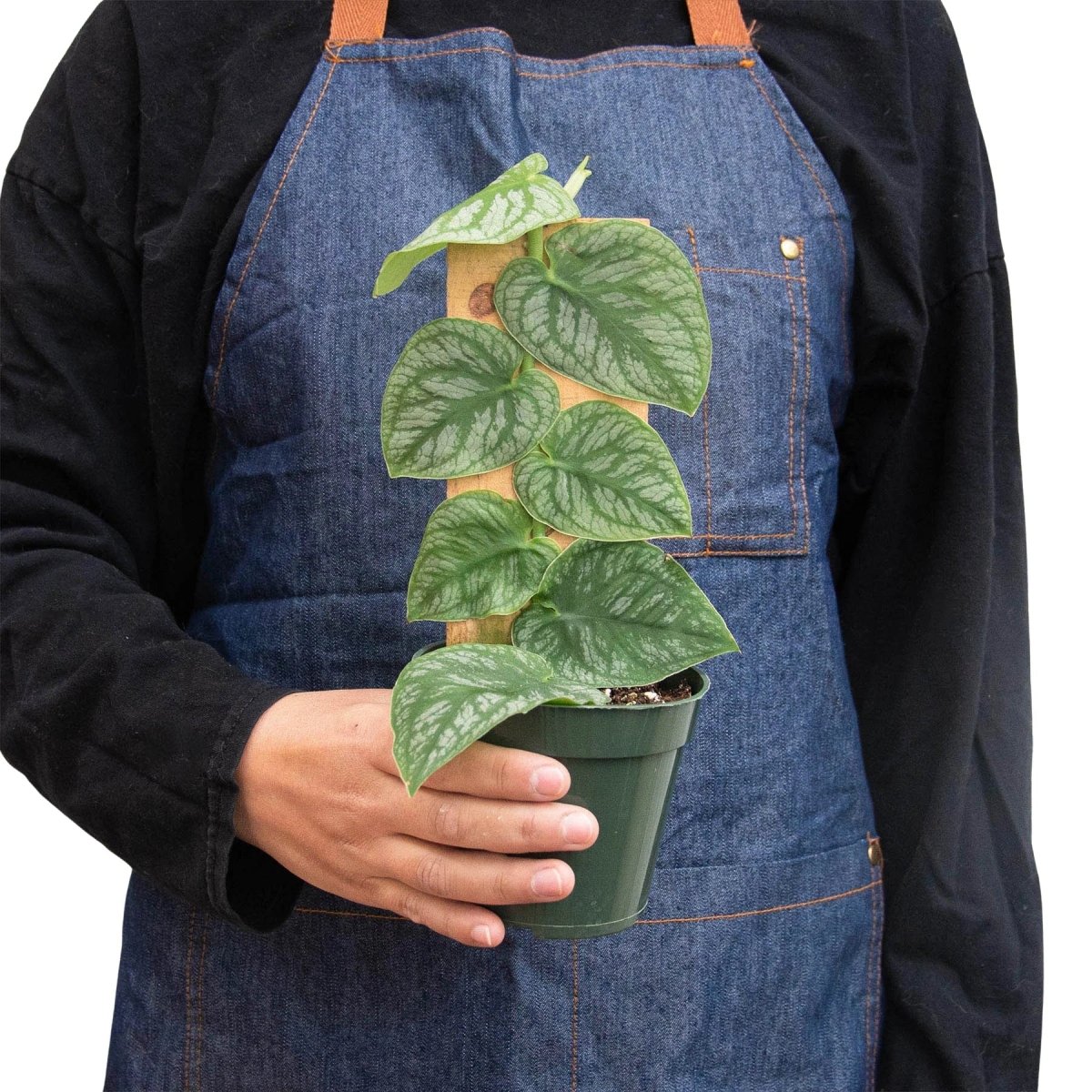1
/
of
3
Monstera 'Shingle Plant'
Monstera 'Shingle Plant'
Regular price
$49.99 USD
Regular price
Sale price
$49.99 USD
Unit price
/
per
Shipping calculated at checkout.
Free Shipping on All Plants
The Monstera dubia 'Shingle Plant' is an intriguing and visually distinctive houseplant, renowned for its unique growth pattern and stunning foliage. This plant showcases glossy, dark green leaves that adhere closely to any support, giving it the appearance of shingles on a roof, hence the name. The leaves are characterized by their texture and a pattern that adds an extra layer of visual interest. Exhibiting a climbing growth habit, the 'Shingle Plant' can be encouraged to ascend on supports that can reach a height of approximately 2-3 feet.
Botanical & Common Names
Botanical & Common Names
Botanical: Monstera dubia
Common: Shingle Plant, Shingle Monstera
Necessary Care Tips
Necessary Care Tips
- Light: Bright Indirect
- Ideal Temperature: 65-80°F
- Humidity: Medium
- Water: When the top 2 inches of soil are dry
- Fertilize: Once a month during the growing season with a balanced fertilizer diluted to half strength
- Preferred Soil: Well-Draining Potting Mix
Advanced Care Tips
Advanced Care Tips
- Monsteras prefer bright, indirect light but can tolerate lower light conditions.
- The development of fenestrations (the characteristic holes or slits) in Monstera leaves depends on several factors, including the plant's age, growing conditions, and overall health.
- In their natural habitat, these plants are climbers, using their aerial roots to climb. Providing a moss pole or other support can encourage more natural growth and fenestration.
Plant Insights
Plant Insights
- Member of the Araceae family, also known as the Arum family, which is a large family of flowering plants that includes over 3,700 species.
- Monstera plants are native to the tropical rainforests of Central and South America.
- After the plant flowers, it can take as long as 12 to 24 months for the fruit to fully mature and ripen. Once the fruit is mature, it may take an additional 2-3 weeks to ripen to the point where it is safe and pleasant to eat.
- The ripening process is unique: the fruit is covered in hexagonal scales, and as it ripens, these scales start to lift and fall off from the bottom upwards. The fruit is only safe to eat when the scales have naturally fallen off, revealing the creamy flesh underneath.
- Some studies suggest that plants like Monstera can also absorb volatile organic compounds (VOCs) like formaldehyde, benzene, and trichloroethylene, although the effectiveness of this is still a subject of research.
- Unsafe / Toxic
- Medium Maintenance
Couldn't load pickup availability



Subscribe to our emails
Be the first to know about new collections and exclusive offers.


